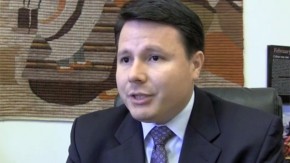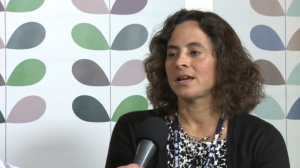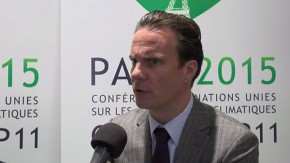Daniel Ortega: Ecuador climate negotiator on 2013 plans
RTCC met Ecuador Ministerial Advisor Daniel Ortega in London to discuss the state of the UN climate talks and Ecuador’s plans to introduce a draft for an OPEC oil tax at the next meeting in may 2013.
OPEC oil tax
“It’s still in the design stage, but it will be taken to the OPEC meeting in the next few months. The idea will be for it to be first entertained in the OPEC arena, develop a status, and at the final stage it will be taken to the UNFCCC,” he said. “We think it is a proposal that can generate a sufficient amount of resources, so as perhaps to match 80% of what is needed for the Green Climate Fund.
“OPEC meetings have their own politics but we believe we can make some progress when this group gets together and actually explores the mechanism. Perhaps what is most important at this time is that the OPEC countries agree that the sources of financing should be discussed under UNFCCC, and if this proposal actually provides incentives for that to occur, it is more than welcome.
“Some of the questions have been targeted at how the mechanism actually works. I think the idea of generating resources for all developing countries through a tax of this kind is politically acceptable to everyone.”
Ecuador’s Yasuni-ITT Initiative
“The initiative has received world support from the private and public sector. It promotes an alternative to the current growth paths, depart from that and explore something new.
“The problem so far has been contributions, even though we are making good progress – we have received 35 million Euros from the German government, and from Italy, also from a debt swop. The contributions are there but we recognise this is a difficult economic time.”
Clean Development Mechanism
“We have a lot to thank to the CDM. It was one of the first incentive based mechanisms implemented on a national level. Any kind of incentives we have to implement globally. The CDM has promoted mitigation, sustainable development and has facilitate developing countries to develop renewable energy.
“All of those elements need to be considered in the context of a flexible mechanism, which was initially designed to help countries fulfill their emission targets and at the same time facilitate sustainable development. I think both have been achieved sufficiently. There is some criticism with respect to the CDM and its real environmental integrity and their contribution to the reduction of net level of emissions.
“It’s essentially offsetting – we cannot ask more than it can deliver. However it has fulfilled its function; it is well accepted, and more importantly, without the CDM we were not able to think about any other incentive based mechanism at present.
“In my personal view the CDM has been a stepping stone for the international community to build upon it.”
“There is more to see from the Like Minded Group. The only purpose of the LMG has been to ensure other countires are not distracted from the real problems we need to solve. Everything else can me seen as a marginal step forward like we saw in Cancun. But we really need to see and discuss how the ambition can be reached, how the resources will be there to reach the ambition, while at the same time supplying resources for adaptation.
“I don’t think it [The Group] should be seen as a blocking process, but essentially our responsibility and the one entrusted by our people remains in us to do the right thing at the right moment, and we think the international community needs to engage in those types of discussions.”





